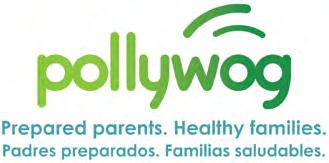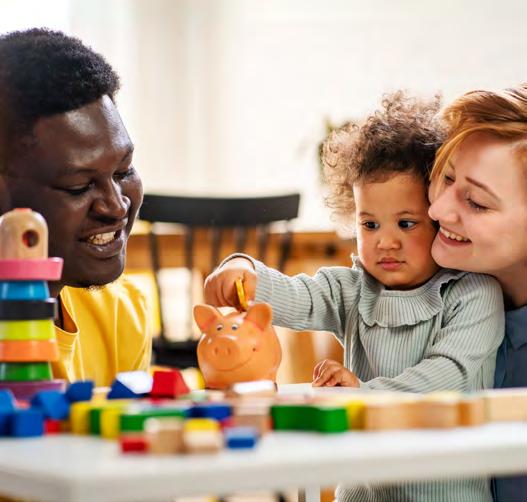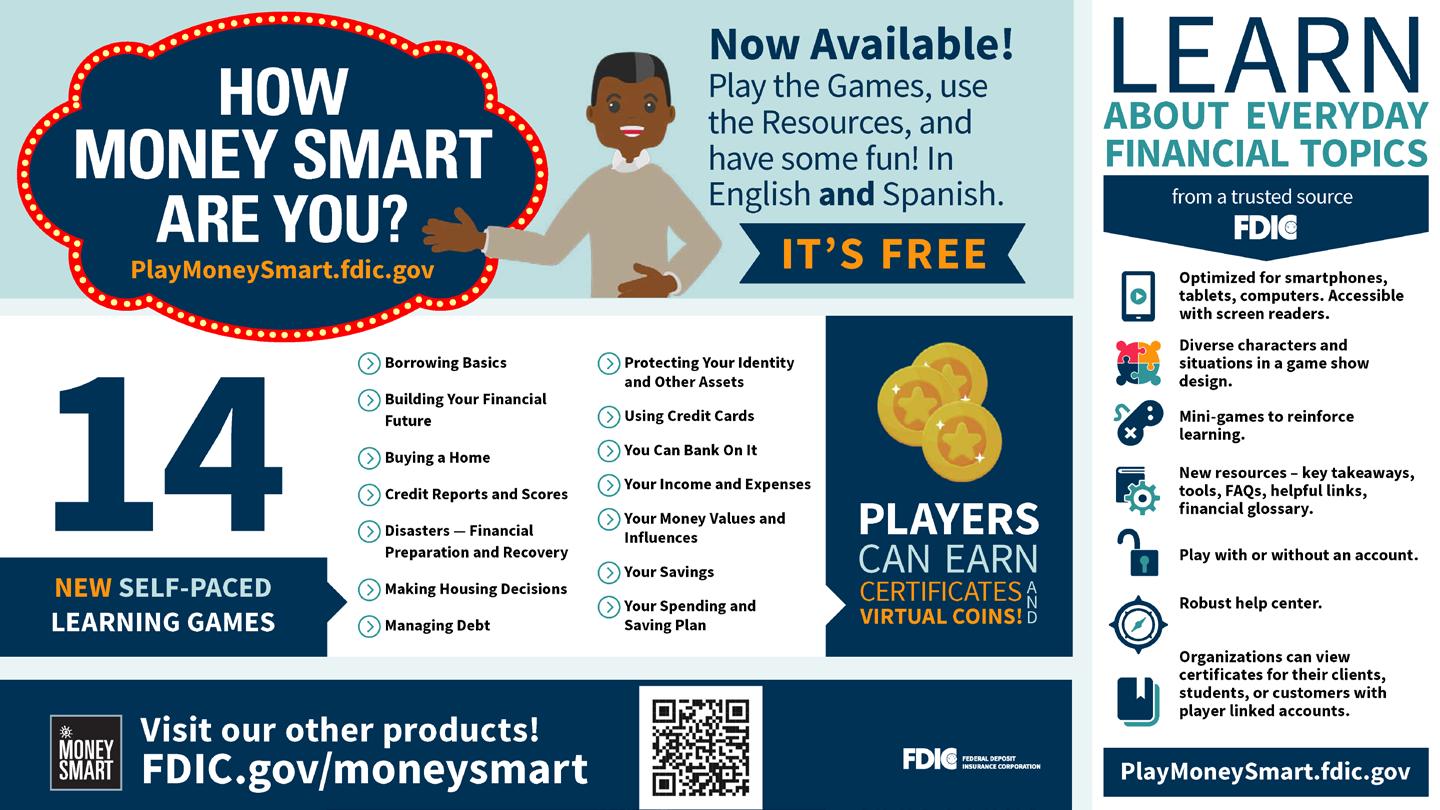

Building Healthy Money Habits at Home
Learning About Money Starts at Home
Even before kids start school, they’re forming ideas about money—how it works, what it’s for, and how we use it. The good news? You don’t need to be a financial expert to help your child build smart habits. Everyday moments—like grocery shopping or picking out a treat—are great chances to help them learn.
What Can Little Ones Learn About Money?
You don’t need to teach your preschooler about credit or interest just yet—but kids ages 3–5 can learn important ideas like:
• What money is for (buying things we need or want)
• Where money comes from (earned by working)
• That things cost different amounts
• That we can choose how we use money (spend, save, or share)
• That we sometimes have to wait or plan ahead for things we want
These early lessons help children build strong brain skills, also known as executive function skills. These include focusing attention, remembering rules, waiting their turn, and solving problems—all essential for both life and future money decisions.
Parent Newsletter September 2025

Easy Ways to Build Money Smarts Talk About Money in Everyday Life
Young children learn best by watching and listening. Use daily moments to teach:
• At the store: “We’re buying apples today because they’re on sale.”
• With coins or bills: “This is a quarter. Four of these make one dollar.”
• While saving: “We’re putting money aside each week for our family trip.”
Try Fun Money Activities
Make learning about money playful and hands-on:
• Coin scavenger hunt: Hide coins and sort them by size or color
• Play pretend store: Use toys or household items and play money
• Save in a clear jar: Let your child see coins adding up over time
• Savings chart: Create a goal chart for something your child wants and color in boxes as they save

• Three jar method: Use jars labeled Spend, Save, and Share. Help your child divide up money when they receive it
You can also talk about how the “Share” jar can be used to help others—like giving to a cause or buying a gift for someone else.
Read About Money
Books are a fun and easy way to start conversations about saving, spending, and making choices. Try these:
• A Chair for My Mother by Vera B. Williams
• Sam and the Lucky Money by Karen Chinn
• My Rows and Piles of Coins by Tololwa Mollel
• A Bargain for Frances by Russell Hoban
• The Berenstain Bears’ Trouble with Money by Stan and Jan Berenstain
Tip: Ask questions like, “What would you do in this story?” or “What was a smart choice someone made?”
For Parents: Your Money Habits Matter
Your child learns by watching you. Even if you don’t talk about money directly, they’re noticing how you make decisions—what you buy, what you wait for, and what you save up for. Want to build your own confidence around money? These free tools can help:
• Stand By Me - Free Financial Coaching Stand By Me offers free financial coaching to help you meet your personal goals
• DevNW Personal Finance One-on-one financial counseling and personal finances classes
• Consumer Financial Protection Bureau “Money As You Grow” Age-based tips and tools to help your




Pollywog Facebook
Pollywog Website
Pollywog Instagram
Pollywog YouTube
children’s money skills, habits, and attitudes grow.
• FDIC “Money Smart for Young People” Parent guides and fun activities to build smart money skills
• Financial Literacy Rocks! Prepare yourself for, and teach your kids, proper money management
• Pollywog Resources: Financial Education for Families
Financial literacy resources to help parents and families develop healthy financial habits, plan for the future and reduce financial stress
To Sum It Up
• Preschoolers can learn skills that will help them handle money later in life
• Family routines like shopping, saving, and reading are great learning tools
• Talking about money can be simple, fun, and part of everyday life
• You are your child’s first and most important money teacher
Small money lessons today can lead to smart money choices tomorrow.

Pollywog Family 6500 Pacific Blvd. SW, LM-132 Albany, OR 97321
541-917-4884, pollywog@linnbenton.edu
Copyright © Pollywog 2017, All rights reserved.
